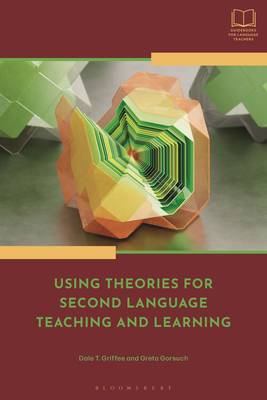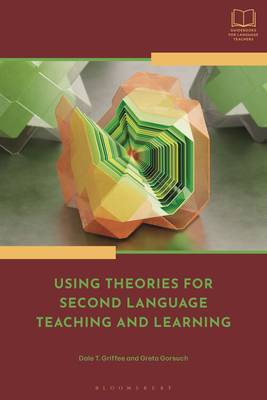
- Retrait gratuit dans votre magasin Club
- 7.000.000 titres dans notre catalogue
- Payer en toute sécurité
- Toujours un magasin près de chez vous
- Retrait gratuit dans votre magasin Club
- 7.000.0000 titres dans notre catalogue
- Payer en toute sécurité
- Toujours un magasin près de chez vous
Description
This book helps second language teachers use theories in their practice, exploring in concrete and practical ways the intersections between teachers, learners, and institutions, and theories of teaching, theories of learning, and theories of language. These intersections provide language teachers with critical insights on how to deal with professional complexities and practical guidance on how to develop appropriate pedagogical practice. By focusing on theories of teaching, the authors give readers the tools to create a clear image of the kind of teacher they wish to be. By exploring theories of learning, they promote the formation of teachers' personal theories which allow them to identify their own areas of special interest in learner achievement and enrichment. By examining theories of language, the book shows how administrators and teachers can use theories to identify course goals and plan priorities for class time.
Using Theories for Second Language Teaching and Learning treats theory as a concept in its own right and promotes knowing theory as a means of teacher discovery, reflection, and learning through case studies, which are descriptions and analyses of teachers thinking and acting in classrooms and in the institutions in which they work. Every chapter presents case studies with examples from the teaching of different languages, including Chinese, English, French, German, and Korean. An array of theories from multiple disciplines are featured and reflective projects are offered that lead readers to discover the importance and role of theory in daily professional life.Spécifications
Parties prenantes
- Auteur(s) :
- Editeur:
Contenu
- Nombre de pages :
- 288
- Langue:
- Anglais
- Collection :
Caractéristiques
- EAN:
- 9781350258914
- Date de parution :
- 25-01-24
- Format:
- Livre relié
- Format numérique:
- Genaaid
- Dimensions :
- 156 mm x 234 mm
- Poids :
- 580 g







